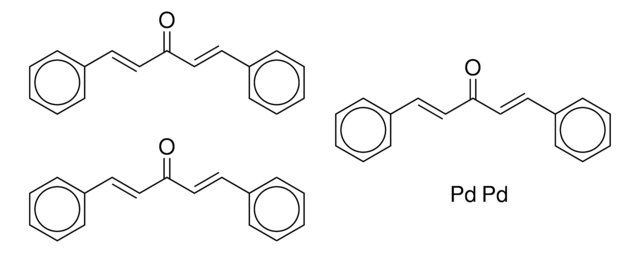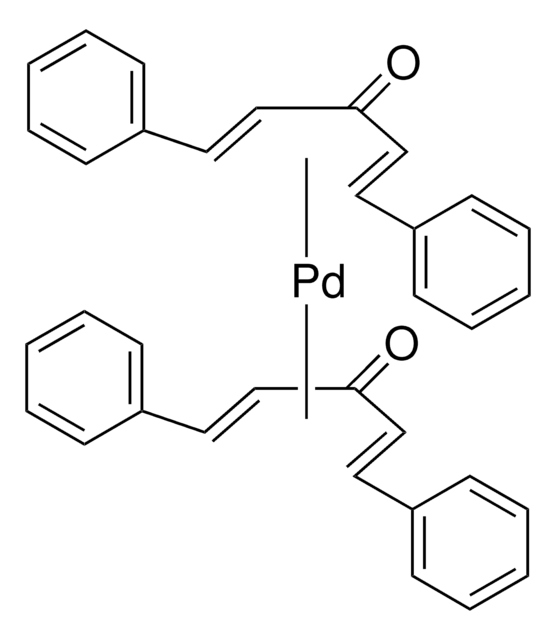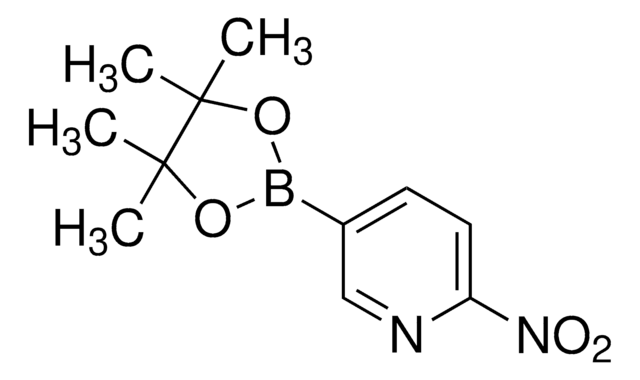688495
(S)-4-tert-Butyl-2-[2-(diphenylphosphino)phenyl]-2-oxazoline
97%
Synonym(s):
(4S)-tert-Butyl-2-[2-(diphenylphosphino)phenyl]-4,5-dihydrooxazole
About This Item
Recommended Products
Quality Level
Assay
97%
form
solid
optical activity
[α]22/D -57.0°, c = 1 in chloroform
mp
111-116 °C
functional group
ether
phosphine
storage temp.
−20°C
SMILES string
CC(C)(C)[C@@H]1N=C(C2=CC=CC=C2P(C3=CC=CC=C3)C4=CC=CC=C4)OC1
InChI
1S/C25H26NOP/c1-25(2,3)23-18-27-24(26-23)21-16-10-11-17-22(21)28(19-12-6-4-7-13-19)20-14-8-5-9-15-20/h4-17,23H,18H2,1-3H3/t23-/m1/s1
InChI key
DMOLTNKQLUAXPI-HSZRJFAPSA-N
Related Categories
General description
Application
Storage Class Code
11 - Combustible Solids
WGK
WGK 3
Flash Point(F)
Not applicable
Flash Point(C)
Not applicable
Personal Protective Equipment
Choose from one of the most recent versions:
Already Own This Product?
Find documentation for the products that you have recently purchased in the Document Library.
Articles
Of the thousands of chiral ligands used in asymmetric synthesis a relatively large number exhibit C2-symmetry. More recently, non-symmetrical modular P,N-ligands have been introduced independently by Pfaltz, Helmchen, and Williams and applied successfully in various metal-catalyzed reactions.
Related Content
Andreas Pfaltz has a longstanding interest in the design of chiral ligands for asymmetric catalysis. The semicorrins developed in his group served as the prototype for an important family of nitrogen ligands, the bisoxazolines, which have found widespread use in catalytic asymmetric synthesis.
Global Trade Item Number
| SKU | GTIN |
|---|---|
| 688495-100MG | |
| 688495-500MG | 4061833056011 |
Our team of scientists has experience in all areas of research including Life Science, Material Science, Chemical Synthesis, Chromatography, Analytical and many others.
Contact Technical Service
![(4S)-2-[2-(diphenylphosphino)phenyl]-4,5-dihydro-5,5-dimethyl-4-(1-methylethyl)-oxazole 97%](/deepweb/assets/sigmaaldrich/product/structures/107/824/762d9981-a585-4c92-862b-4c9fef6e2fc1/640/762d9981-a585-4c92-862b-4c9fef6e2fc1.png)
![(R)-(+)-2-[2-(Diphenylphosphino)phenyl]-4-isopropyl-2-oxazoline ≥97.0% (CHN)](/deepweb/assets/sigmaaldrich/product/structures/854/832/42ef7795-7199-4547-b48d-6fd210548e2d/640/42ef7795-7199-4547-b48d-6fd210548e2d.png)




![(S)[(Sp)-2-(Diphenylphosphino)ferrocenyl]-4-isopropyloxazoline 97%](/deepweb/assets/sigmaaldrich/product/structures/265/471/6ec7300c-126b-4e22-9b5b-12634da58dbd/640/6ec7300c-126b-4e22-9b5b-12634da58dbd.png)
![[Pd(allyl)Cl]2 Umicore](/deepweb/assets/sigmaaldrich/product/structures/367/851/7e957f32-7c31-40bf-8349-77de7cc990e4/640/7e957f32-7c31-40bf-8349-77de7cc990e4.png)
![(S)-2-[2-[Bis(2-tolyl)phosphino]phenyl]-4-tert-butyl-2-oxazoline 97%](/deepweb/assets/sigmaaldrich/product/structures/274/207/8e737339-4062-47ee-b25f-d5e4cf210447/640/8e737339-4062-47ee-b25f-d5e4cf210447.png)